Intro
Identify 7 flu symptoms, including fever, cough, and fatigue. Learn about influenza signs, seasonal flu, and common cold differences, to manage symptoms effectively.
The flu, also known as influenza, is a highly contagious respiratory illness that affects millions of people worldwide each year. It is essential to recognize the symptoms of the flu to seek medical attention promptly and prevent complications. The flu symptoms can range from mild to severe and can affect anyone, regardless of age or health status. In this article, we will delve into the 7 flu symptoms, their causes, and what you can do to manage them.
The flu is caused by the influenza virus, which is spread through the air when an infected person coughs, sneezes, or talks. The virus can also be spread by touching surfaces contaminated with the virus and then touching your mouth, nose, or eyes. The flu can be severe, especially for older adults, young children, and people with certain chronic health conditions. Recognizing the symptoms of the flu is crucial to getting the right treatment and preventing complications.
The symptoms of the flu can develop suddenly and can be severe. They can include fever, chills, cough, sore throat, runny or stuffy nose, muscle or body aches, headaches, fatigue, and diarrhea and vomiting, although these last two are more common in children than in adults. It is essential to seek medical attention if you experience any of these symptoms, especially if you are at high risk for complications. In the following sections, we will explore each of these symptoms in more detail and provide guidance on how to manage them.
Understanding the 7 Flu Symptoms
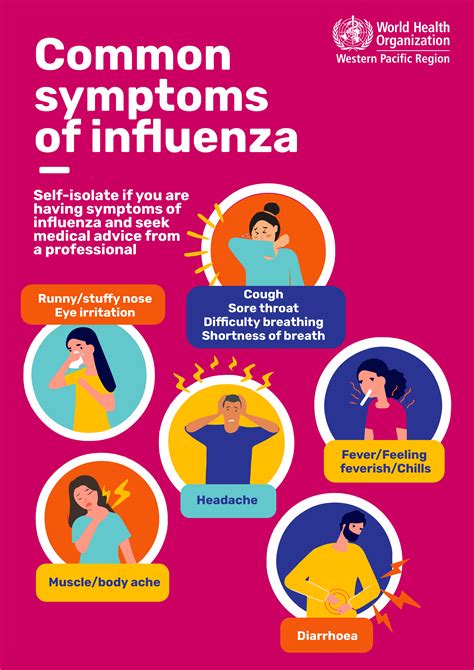
The 7 flu symptoms are fever, chills, cough, sore throat, runny or stuffy nose, muscle or body aches, and headaches. These symptoms can range from mild to severe and can affect anyone, regardless of age or health status. In this section, we will explore each of these symptoms in more detail and provide guidance on how to manage them.
Fever and Chills
Fever and chills are common symptoms of the flu. A fever is a rise in body temperature, usually above 100.4°F (38°C). Chills are a feeling of coldness, even if the body temperature is high. Fever and chills can be managed with over-the-counter medications, such as acetaminophen or ibuprofen. However, it is essential to follow the recommended dosage and consult with a healthcare professional if you have any underlying medical conditions.Managing Flu Symptoms
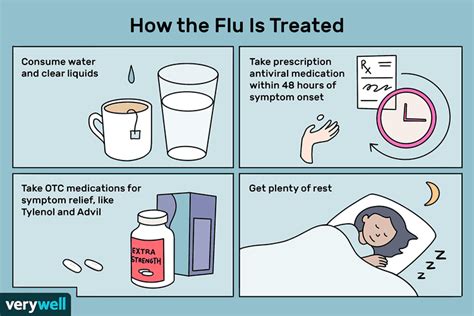
Managing flu symptoms is crucial to preventing complications and reducing the risk of transmission. In this section, we will explore the different ways to manage flu symptoms, including rest, hydration, medication, and nutrition. We will also discuss the importance of seeking medical attention if symptoms worsen or if you are at high risk for complications.
Rest and Hydration
Rest and hydration are essential for managing flu symptoms. Getting plenty of rest can help your body fight off the infection, while staying hydrated can help thin out mucus and reduce congestion. It is recommended to drink at least 8-10 glasses of fluid per day, such as water, clear broth, or electrolyte-rich beverages like sports drinks. Avoid caffeinated and alcoholic beverages, as they can dehydrate the body.Preventing the Flu
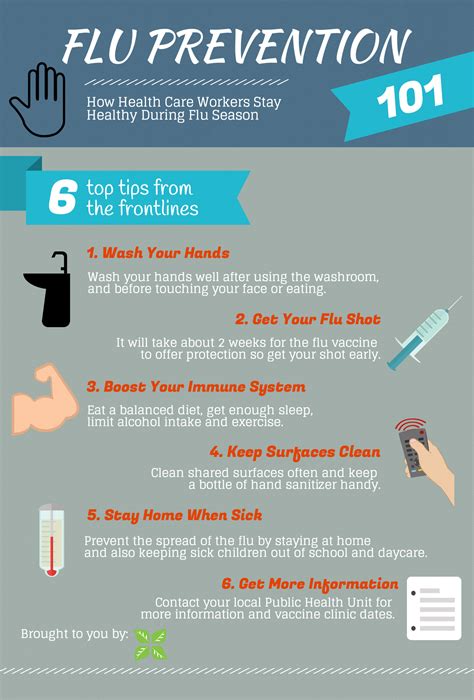
Preventing the flu is crucial to reducing the risk of transmission and preventing complications. In this section, we will explore the different ways to prevent the flu, including vaccination, good hygiene practices, and avoiding close contact with people who are sick.
Vaccination
Vaccination is the most effective way to prevent the flu. The flu vaccine is available each year and is recommended for everyone 6 months and older. The vaccine can help prevent the flu or reduce the severity of symptoms if you do get sick. It is essential to get vaccinated every year, as the flu virus can change from year to year.Treatment Options

Treatment options for the flu depend on the severity of symptoms and the individual's overall health. In this section, we will explore the different treatment options, including antiviral medications, over-the-counter medications, and home remedies.
Antiviral Medications
Antiviral medications, such as oseltamivir (Tamiflu) or zanamivir (Relenza), can help treat the flu by reducing the severity and duration of symptoms. These medications are most effective when started within 48 hours of symptom onset. However, they can have side effects, such as nausea, vomiting, and diarrhea, and are not recommended for everyone.Complications of the Flu
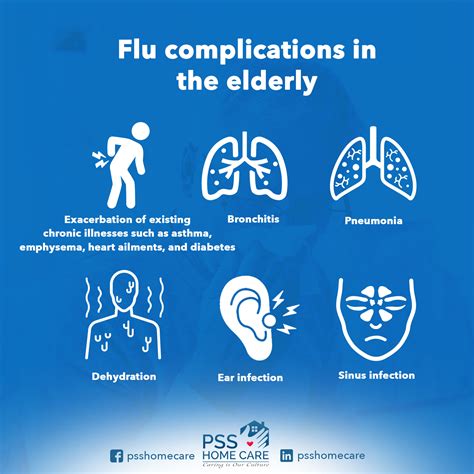
Complications of the flu can be severe, especially for older adults, young children, and people with certain chronic health conditions. In this section, we will explore the different complications of the flu, including pneumonia, bronchitis, sinus and ear infections, and heart problems.
Pneumonia
Pneumonia is a common complication of the flu, especially for older adults and young children. Pneumonia is an infection of the lungs that can cause symptoms such as cough, fever, and shortness of breath. If left untreated, pneumonia can be life-threatening.Conclusion and Next Steps
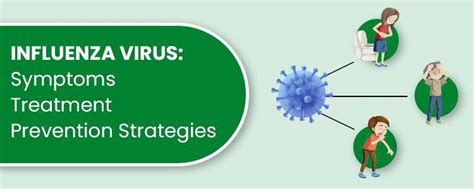
In conclusion, recognizing the 7 flu symptoms is crucial to seeking medical attention promptly and preventing complications. Managing flu symptoms, preventing the flu, and understanding treatment options can help reduce the risk of transmission and prevent complications. If you experience any symptoms of the flu, it is essential to seek medical attention, especially if you are at high risk for complications.
We hope this article has provided you with valuable information about the 7 flu symptoms. If you have any questions or concerns, please do not hesitate to comment below. Share this article with your friends and family to help raise awareness about the importance of recognizing and managing flu symptoms.
What are the 7 flu symptoms?
+The 7 flu symptoms are fever, chills, cough, sore throat, runny or stuffy nose, muscle or body aches, and headaches.
How can I manage flu symptoms?
+Managing flu symptoms includes rest, hydration, medication, and nutrition. It is essential to follow the recommended dosage of over-the-counter medications and consult with a healthcare professional if you have any underlying medical conditions.
Can I prevent the flu?
+Yes, preventing the flu is crucial to reducing the risk of transmission and preventing complications. Vaccination, good hygiene practices, and avoiding close contact with people who are sick can help prevent the flu.
What are the treatment options for the flu?
+Treatment options for the flu depend on the severity of symptoms and the individual's overall health. Antiviral medications, over-the-counter medications, and home remedies can help treat the flu.
What are the complications of the flu?
+Complications of the flu can be severe, especially for older adults, young children, and people with certain chronic health conditions. Pneumonia, bronchitis, sinus and ear infections, and heart problems are common complications of the flu.
